Jessica Walter Is Game For Anything
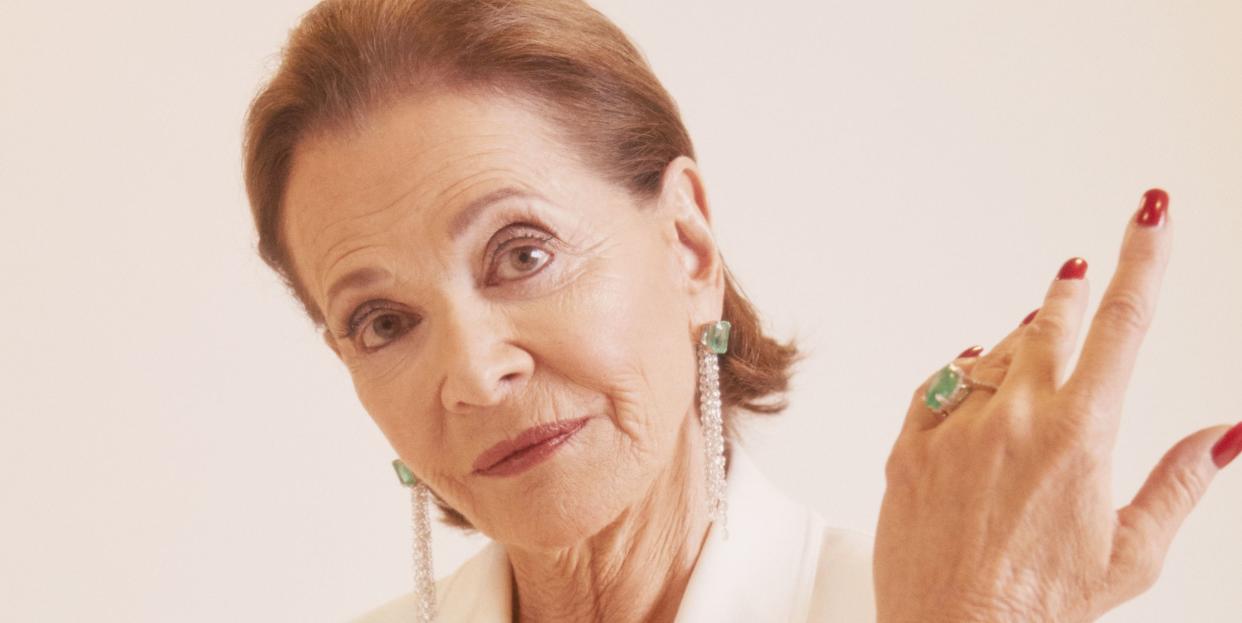

If the worst comes to pass-the sea level rises, takes out the power grid, knocks out the internet, and we lose IMDb, casting directors can rest easy. I'll give you the name of a diner in the Upper West Side where you might find Jessica Walter. Over 60-plus years as an actress, there's almost nothing she hasn't done, seemingly nobody she hasn't crossed paths with, and no project she hasn't either starred in, seen, or otherwise mentally logged-complete with dates, cast lists (first and last names), and, most notably, an enthusiastic word or two of praise. At least that's the sense I get as we chat in Walter's no-frills uptown haunt over lunch: grilled chicken sandwiches, mine with salad, hers with fries that she's taking home to her husband, Tony-winning actor Ron Leibman. Walter just finished binging House of Cards-the last season, she tells me, without Kevin Spacey. She thought he was fine, but Robin Wright was so commanding. Speaking of…she was just shooting an episode of At Home with Amy Sedaris ("She looks like she's maybe 35. I Googled it, she's 57. I couldn't believe it") and ran into Campbell Scott on set. She just had to tell him how good he was in House of Cards: "You could eat him up with a spoon." Tomorrow, she's flying out to L.A. to shoot a guest role on NBC's Good Girls with "little Mae Whitman. I always knew she'd go far…." It sounds like Walter can happily can go on like this forever.

All this is to say, Jessica Walter has seen it all, and she's still taking it all in.
Walter was raised in Astoria, Queens. Her father was a world-class musician who played with the renowned composer Arturo Toscanini and alongside cellist Pablo Casals. Her mother arrived from the USSR shortly before the enactment of a 1924 law that set immigration quotas that largely curtailed the arrival of Jewish immigrants. "So you can imagine all the stuff going on with immigration now has a great impact on me," says Walter. She attended the High School for the Performing Arts (the school that inspired Fame), and later the Neighborhood Playhouse School of the Theater (birthplace of the Meisner technique). She quickly found work on stage and in television, but her big break came in the 1966 Sidney Lumet movie The Group, based on Mary McCarthy's bestselling novel. The story follows a group of college friends over the span of seven years, from 1933 to 1940, after they graduate and splinter off to pursue their own relationships, careers, and travels. Even today, the film feels modern. It was ahead of its time in exploring progressive themes: sexuality, domestic violence, alcoholism, mental illness, abortion and contraception, class, and gender politics.
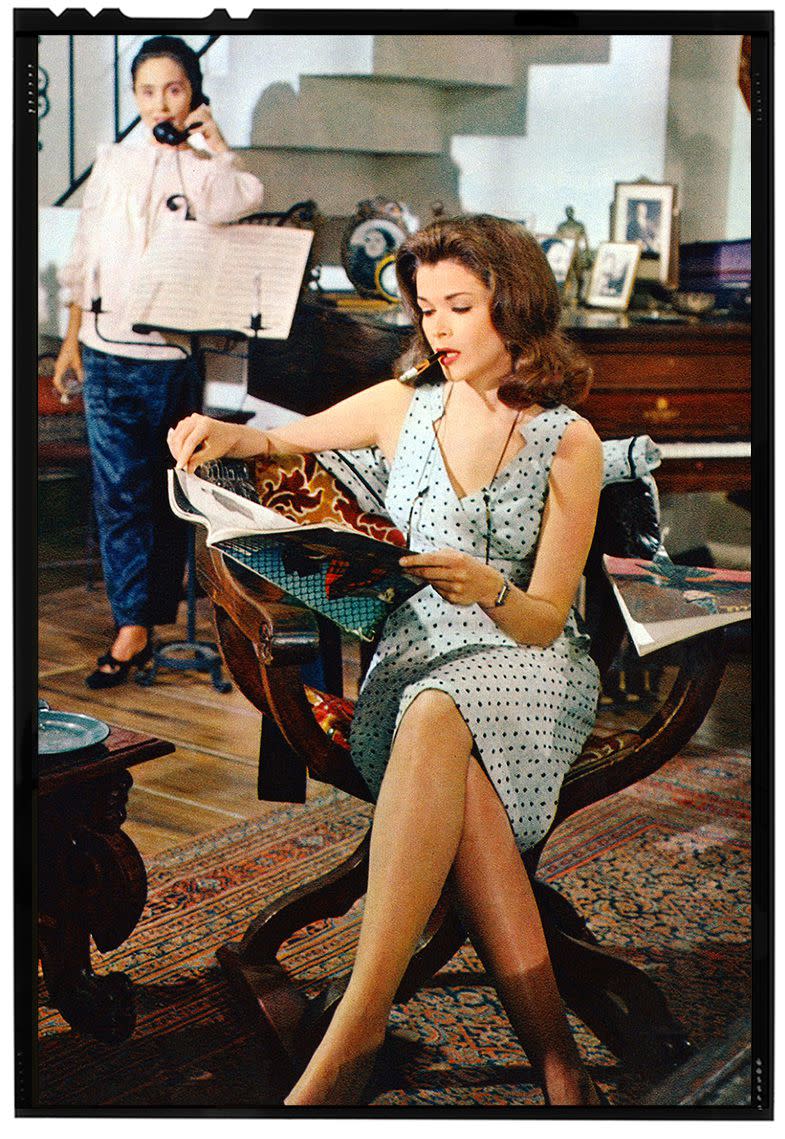
Walter met with Lumet to lobby for the part of Lakey, the group's worldly and high society–cool leader, who leaves for Europe at the outset of the film and returns later with a gay lover. Lakey would eventually go to Candice Bergen. "I made my thoughts known about which part I wanted," says Walter, "and he said, 'No, I see you more as Libby.' And he was right!" Libby is the clique's sharp wit. She finds a job in publishing and takes her time shopping around for Mr. Right; she puts on the blithe air of sexual freedom, but admits that she's a virgin after a boyfriend ignores her protests and attempts to rape her. He humiliates her and storms out, ultimately contributing to the erosion of her sense of self. Over the course of the film, Libby loses her youthful insouciance; her friendly teasing curdles into bitter barbs. If you scooped out the subversive humor of Lucille Bluth, Walter's famously acid-tongued character on Arrested Development, you could draw a straight line from Libby to Lucille. When it opened in theaters, The Group was the Avengers of rising starlets, but even among a cast stacked with talent, Walter stood out for her transformative performance.
That same year, she appeared in the Formula One drama Grand Prix, starring James Garner and Eva Marie Saint, which at the time was lauded as a feat of technical filmmaking by Manchurian Candidate director John Frankenheimer, who himself had come up under Lumet. Before Grand Prix and The Group, Walter had only appeared in one other feature film (a small role in Lilith, starring Warren Beatty and Jean Seberg). Now she had worked with two directors considered modern masters of American cinema. She and Lumet became friends and collaborators. He cast Walter in the arthouse comedy Bye Bye Braverman in 1968; when she filled in as co-host on Good Morning America in 1975 ("I've had a strange career," Walter notes), she brought Lumet on as her guest to promote his new film, Dog Day Afternoon. She got to work with iconic writers too, like Oscar-winning Sidney Buchman, one of "the boys" who secured screenwriting contracts back in the days of the Old Hollywood studio system, who wrote Mr. Smith Goes to Washington, Here Comes Mr. Jordan, Talk of the Town, and Cleopatra before penning the screenplay for The Group at the end of his career. "It was a wonderful script, and it all starts with the script," says Walter before offering up a saying from her theater days: "If it ain't on the page, it ain't on the stage."
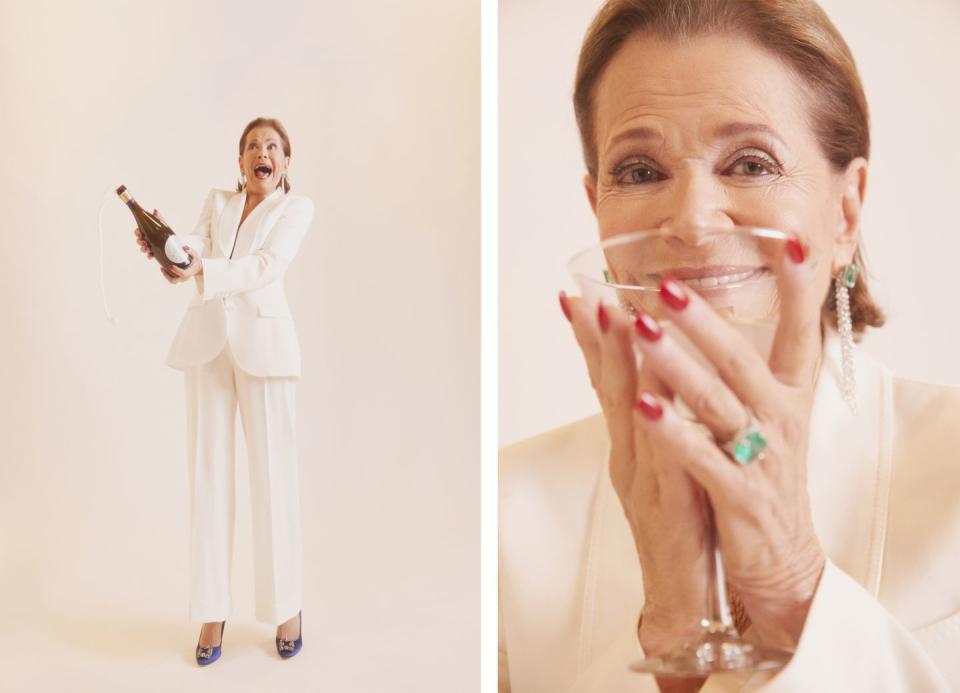
After her movie career took off, Walter and her first husband (theater stage manager Ross Bowman, who she's met during her first Broadway gig in Advise and Consent) moved to Los Angeles in 1969. "Just in time for the Manson killings," she says. "I was living in Coldwater Canyon. I was a nervous wreck. We got a German Shepherd, we were so scared." It was then that Walter's performance in Lumet's The Group caught the eye of another director, this time a first-timer named Clint Eastwood. He was casting his behind-the-camera debut, Play Misty for Me, and was ready to give the lead role to another actress ("I know who," says Walter, "but I won't say") before asking to meet with Walter. They sat and talked for an hour. "I never read, I never had an audition," she says. She got the part.
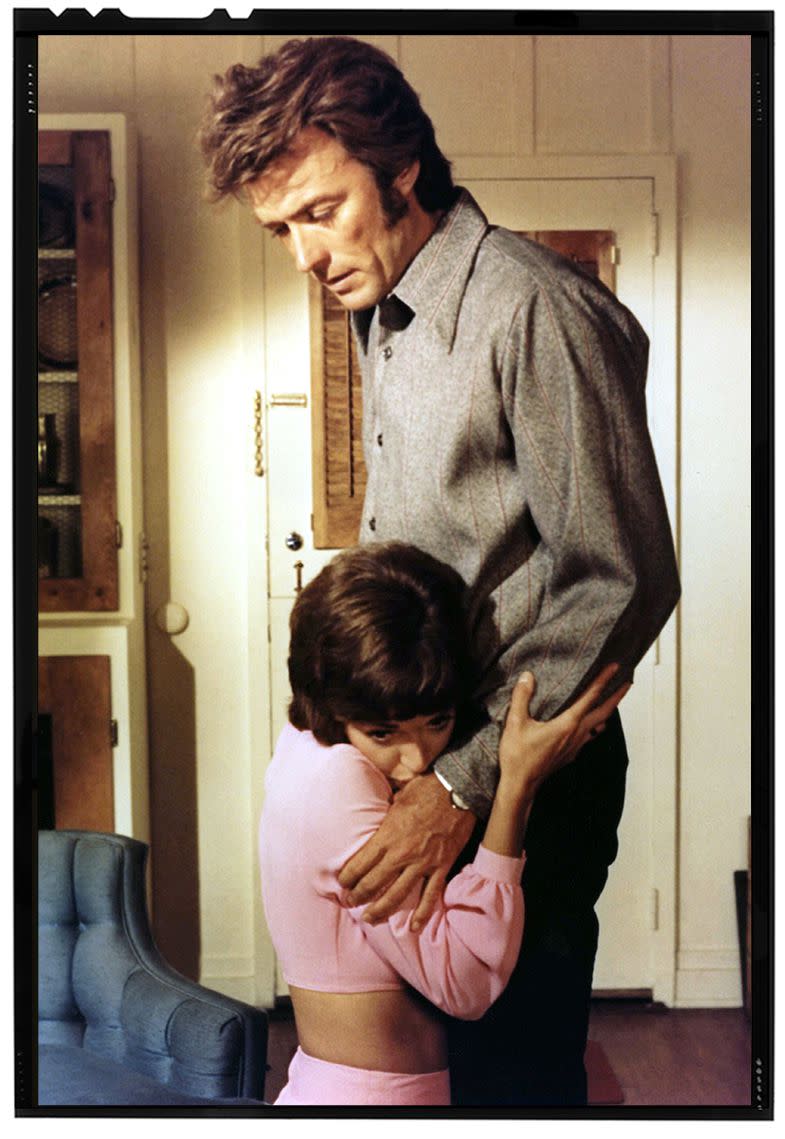
Before there was Fatal Attraction, Single White Female, or Unfaithful, there was Play Misty for Me. Walter plays a woman obsessed with a disc jockey, played by Eastwood, and begins to stalk him. At first, she calls into his radio show nightly to request the Erroll Garner jazz standard "Misty." Soon she manufactures reasons to bump into him. They sleep together; she begins to show up to his house unannounced with groceries. Things get weird. All the while, you can't take your eyes off Walter. One minute, she oozes genuine, 100-percent-natural sweetness. The next minute, she snaps. But it's the way she snaps. That's when her star power comes into sharp relief. It's at once jarring but uncomfortably familiar to anyone who's ever felt so much as a pang of unrequited love. In one scene, she gives Eastwood's character a surprise gift, a new pair of shoes. Her dejection at his lack of gratitude is heartbreaking. You'd almost empathize if she didn't follow it up with attempted murder.
Walter recently watched that scene again at a ceremony for The Carney Awards, an event named after the late Art Carney that celebrates the work of character actors. As she watched the footage, "I thought, Wow, I guess I am a character actor. Because even my 'leading ladies'-you know, in air quotes-were characters," she says. "They were not Miss Vanilla Ice Cream. They weren't holding the horse while John Wayne galloped into the sunset." She adds: "I was actually up for a John Wayne movie once. This was way, way back. And the feedback was, 'We really like Jessica, but we just don't see her holding the horse.'"
Walter wanted to do more than just hold the horse-a lot more. “I lost more parts than I've ever had, but you realize quick that you have to be like a terrier with a bone,” she says. "So I did the circuit. My God, I did the circuit. If it's a good role, I don't care what the medium is, I take it." She's been in Tony-winning Broadway plays (Anything Goes). She starred in a legal procedural with a pre-Star Trek William Shatner. She appeared alongside Ida Lupino in one of the very first TV "Movies of the Week." If she didn't star in a network series (the short-lived Amy Prentiss, which nonetheless earned Walter her only Emmy to date), she guest starred on it (The Defenders, Columbo, Touched by an Angel), sometimes being invited to return repeatedly as different characters (four on Murder, She Wrote, six on The Love Boat, four on Mannix, six on The F.B.I.).
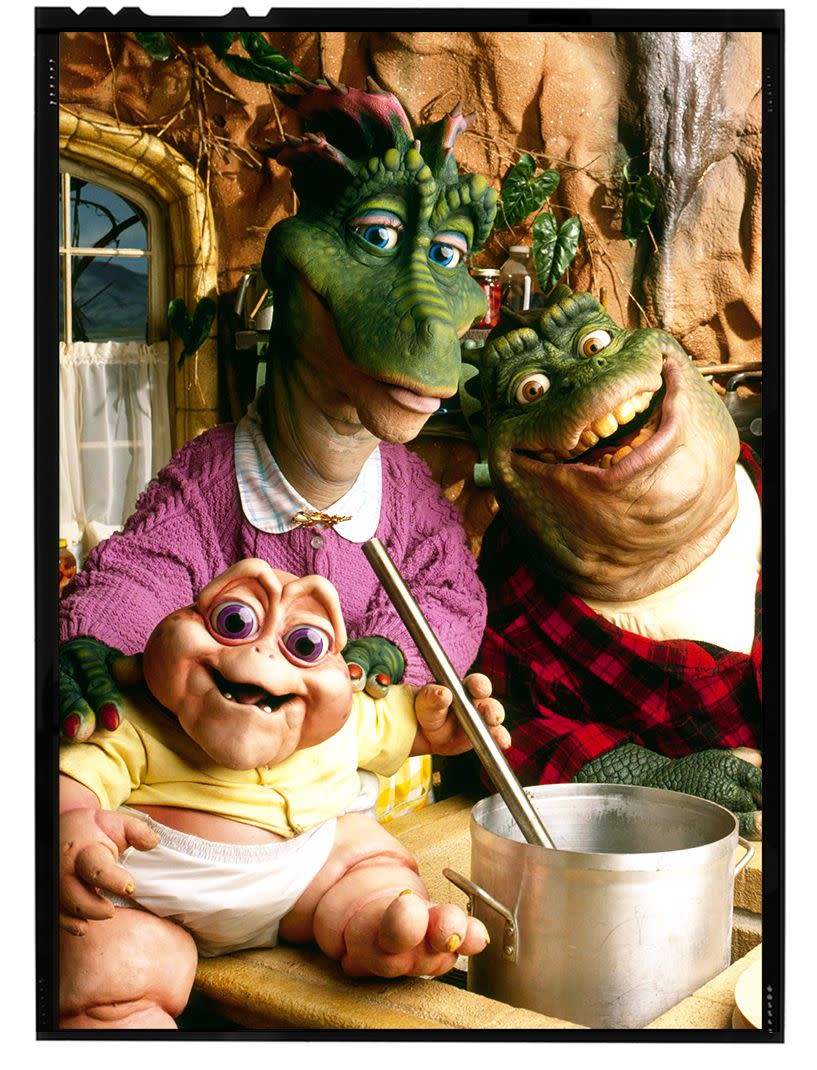
She voiced the anthropomorphic puppet of a homemaking allosaurus in the sitcom Dinosaurs-and she got into it. "One day, during the third year of the show, I was watching it on TV, and I said to Ron, 'I think something's off about Fran! That's not Fran!' So I called the producer and he said, 'Our [puppeteer] got tired, so we got a new guy in there.' And I got so upset. I said, 'But he's ruining it, she doesn't move like herself anymore!' We're talking about a puppet here!"
She's recorded commercial voiceovers for utility companies ("Southern California Edison, the power behind peace of mind," she croons) and Albertson's and Chase Manhattan Bank. She got her husband to try it too: "I used to tell Ron, 'You must go up for voiceover work.' He didn't want to do it, but eventually he auditioned for a Charlie the Tuna commercial. He was a cartoon tuna, Herschel Bernardi voiced him, and he would interact with animals and other fish. Ron auditioned to be the voice of a pig, and he got it. Then, right when he was due to go in for a recording session, his agent called and said, 'Ron, I don't know how to tell you this, but they decided to go a different way with the pig.' Only in show biz can this happen!"
You don't build a resume as long as Walter's without a distinct element of pragmatism. ("Let's put it this way," she says about just purchasing a new dream apartment, "I don't want to be the richest person in the cemetery.") But Walter's work ethic, her willingness to amass experiences, borders on sport. A sheer love of the game. One after another, there's a story. The stories behind her success are fascinating-who doesn't want to hear about what it's like to apprentice with 1920s megastars like Chester Morris or concoct grotesquely funny characters with Amy Sedaris? But it's her stories about the way Hollywood tries to grind you in its gears that she tells with particular comic aplomb.
"Here's my favorite," she says, leaning forward over Ron's fries, winding up a yarn: "We used to have a brand of milk here in New York called Borden's Milk. Their mascot was Elsie the Cow. They were casting her voice for a commercial, and I went in to audition. In those days, you'd go into the ad agency and there would be all these guys in suits sitting there. They said to me, 'What we want is the moo of a cow who's been happily married for 10 years.' And they were serious! So I said, 'Okay, not nine years, not 11 years-happily married for 10 years. Here goes.' And I mooed! Mooooo, for like five minutes. I did not get it." A smile spreads across Walter's face, and her eyes twinkle, and she doesn't even have to say the words she's said a few times now to bring home the punch line: "Show biz!"
And then there was Arrested Development. When the show wrapped its first season on Fox almost 15 years ago, it ranked 120th in the ratings. Not top 100, not even close. But to say it attracted a loyal fanbase would be like saying the Pacific Ocean is wet. Creator Mitch Hurwitz and his team of writers had created a comedy for comedy aficionados, one so complex as to almost be alienating to casual viewers. (Hence the ratings.) Every episode was an infinite Russian doll of jokes packed within the Russian doll of the previous episode, all requiring multiple viewings. And even then, a viewer could revisit an episode years later only to discover yet another joke or throwaway line or visual gag tucked away in a scene.
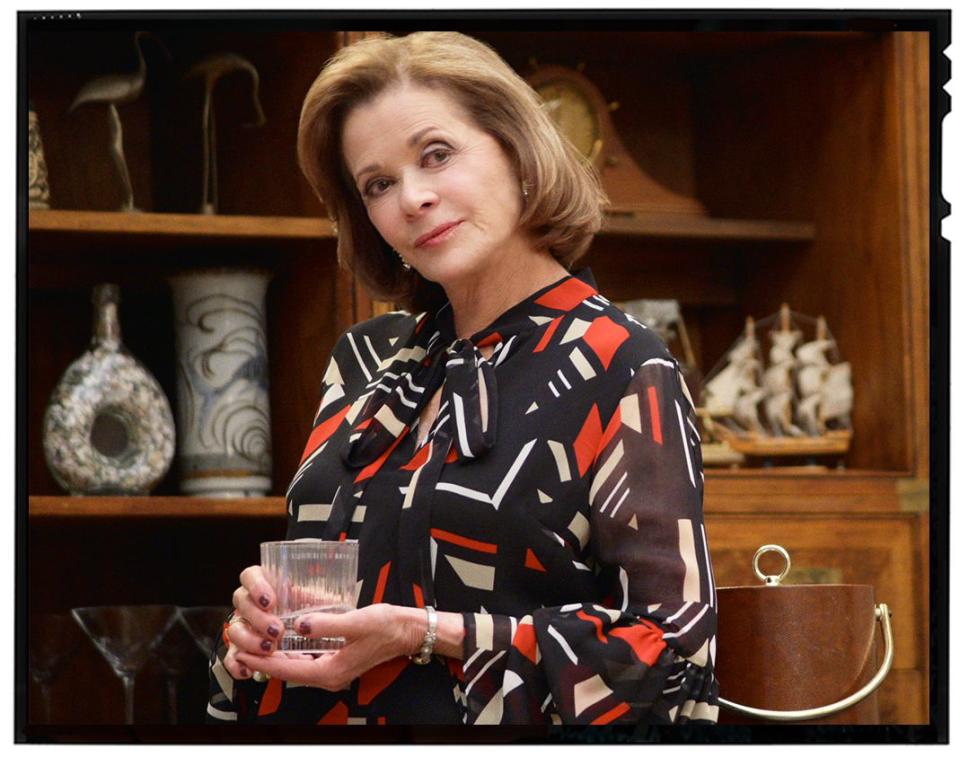
Arrested Development fans are "die hard, just die hard," says Walter, as if gushing about a grandchild. When Fox cancelled the show after three seasons in 2006, those fans lobbied for a fourth and didn't stop until Netflix revived the series seven years later, in 2013. When that season didn't live up to expectations, largely because the cast rarely shared a screen together due to their new work schedules, fans lobbied for yet another re-do. So a fifth season debuted on Netflix five years later, in 2018. This March, the second half of that season will drop. If the show continues at this clip, Walter jokes, "I'll be in a wheelchair, and I won't be able to do it."
The enduring nucleus of every iteration of the show has been the Bluth family, an assortment of deplorable one-percenters played with lovable quirkiness by a tight-knit cast, which became the gold standard of comedy ensembles. And perched atop both the onscreen and on-set family tree were Walter and Jeffrey Tambor, two TV veterans with a gift for infusing broad comedy with relatable nuance. As Lucille Bluth, the family's boozy and emotionally withholding matriarch, Walter became an unlikely icon to the internet generation. The way Lucille's eyes narrow disapprovingly from behind a martini glass. The way she can't wink without contorting her face into a slow-mo car crash. The way she screams and flails her hands when she's surprised. There was no mood that couldn't be memed by Googling "lucille bluth" + your adjective of choice.
Off-camera, Walter was a more nurturing presence, especially to the younger cast. "I was, gosh, 14 years old when we started," says Alia Shawkat, who plays Lucille's granddaughter Maeby. "Jessica became a maternal figure to me, and that hasn't necessarily changed over time. She would read my reviews and email me and check up on me. She'd be like, 'I saw Search Party, Alia, and it's genius!' She'd brag about me to everyone in the hair and makeup trailer. 'Did you see this? Alia's unbelievable in it!' And I'd be like, 'Jessica, please, shhhhh.' She's engaged, she's aware of everything that's going on. She always wants to know what you're doing. I think it's a mentality that comes from an older era of Hollywood. To her, it's a form of respect-for your craft and also for you, the people she works with-to show that she’s informed."
To this day, Lucille obsessives are Walter's biggest admirers. (An aside, because the fandom would demand it: Walter doesn't drink martinis very often these days, but when she does, she has a recipe she picked up from the late character actor William Conrad, the "big, rotund, wonderful guy" who played the "Fatman" in Jake and the Fatman-vodka, olives, a little olive juice to dirty it up, and a "hachoo" of vermouth. Conrad, Walter remembers, would use a small spray bottle to add just a sneeze's worth of vermouth to his extra-dry martini. "You gotta put the h in it," she says. "Hachoo!") Walter says that "Lucille fans are the best, seriously," but perhaps it wasn't until recently that Walter felt the full force of their affection.

Last May, most of the cast of Arrested Development sat down with the New York Times to promote the show's fifth season. Tambor had recently been accused of sexual harassment on the set of Transparent, allegations that resulted in his being removed from the show. Around two weeks before the Times piece, Tambor gave an interview to The Hollywood Reporter in his own defense. In it, he denied the sexual misconduct allegations but copped to being "difficult," and referenced a "blowup" with Walter on the set of Arrested Development. At the time, Walter's rep told THR, "Jessica does not wish to talk about Jeffrey Tambor." When the Times reporter asked the cast about the "blowup," it led to what the paper described as an exchange with the air of a tense "family Thanksgiving dinner." Will Arnett tried to break the tension with a joke. David Cross, Jason Bateman, and Tony Hale tried to, with varying degrees of clumsiness, play conciliators. Shawkat, attempting to correct for the men's unintentional callousness, was drowned out. Tambor had apologized, they said, taken responsibility, and learned from the incident. They'd all had their moments. "But not like that, not like that. That was bad," said Walter. At one point, Walter said, through tears, "Let me just say one thing that I just realized in this conversation. I have to let go of being angry at him.…And I have to give you a chance to, you know, for us to be friends again."
Walter hasn't spoken about the Times interview since it happened, and I broach the subject first by asking her what it feels like to, six decades into her career, watch the cultural sea change ushered in by the #MeToo movement. "The sad thing is that actresses of my generation, we were taught to just suck it up. The show must go on. Time is money. You never walk off set. You just keep going," she says. "Luckily, I've never had anybody be sexually abusive. But if somebody was nasty or rotten or loud, it never would have occurred to me to bring up the incident. Now I would."
In that context, I ask about her experience with Tambor that day on set. "We always have last-minute line changes, and it's difficult to do the work that you want to do when you're thinking, Oh my god, what's my next line? So I had reset a take. And I apologized as Mr. Tambor was going on his rant. I apologized about three times. 'Well, I'm sorry, I'm sorry. If you try to make me feel worse than I do, you can't.' And he ran off set." Here, Walter holds her male co-star to the standards she says are foisted on women: "Time is money. He lost us some time."
About the Times interview, she says, "You try to sweep things under the rug, and it doesn't really work. I got very emotional about it because it had really hurt me." To accompany the story, the Times released audio clips from the conversation, and the sound of Walter, her voice catching in her throat, asserting her experience of things yet somehow finding her way to forgiveness ("I just let it go right here, for The New York Times") rallied social media to her side. It was as if Arrested Development fans, pop culture observers, and basically anyone on Twitter on May 23, 2018 had heard their own gangy (the nickname Lucille's grandkids give her) driven to tears. "I don't do social media," says Walter. "My daughter called and she said, 'Oh mom, you're trending!' I said, 'What does that mean?' I thought it was a fashion thing! Then she explained what it meant, and I was quite overwhelmed by the outpouring of support, that people understood. Especially women in the business, and the women in all kinds of areas of work, that just suck it up even though it hurts, you know?"
Still, Walter says, the whole episode wouldn't have played out in public "if [Tambor] hadn't brought it up in The Hollywood Reporter." She laments that it overshadowed the work that went into bringing the show back, and says that all is well with the men who've played her sons for 15 years. "I adore them, I absolutely do. It's a privilege to work with them." (After the Times interview, Arnett, Bateman, Cross, and Hale all issued apologies to Walter. When I ask Shawkat about it later, she says, "The outpouring afterward was amazing. Like, everyone is a Jessica Walter fan. It felt good to put the focus on that, that sometimes what comes out of these conversations about what men did wrong is: But aren't these women amazing?") Walter is ready to move on. "That's all I'm going to say. Enough with that," she says with a tone of finality and a hachoo of levity: "It's taking focus away from me."
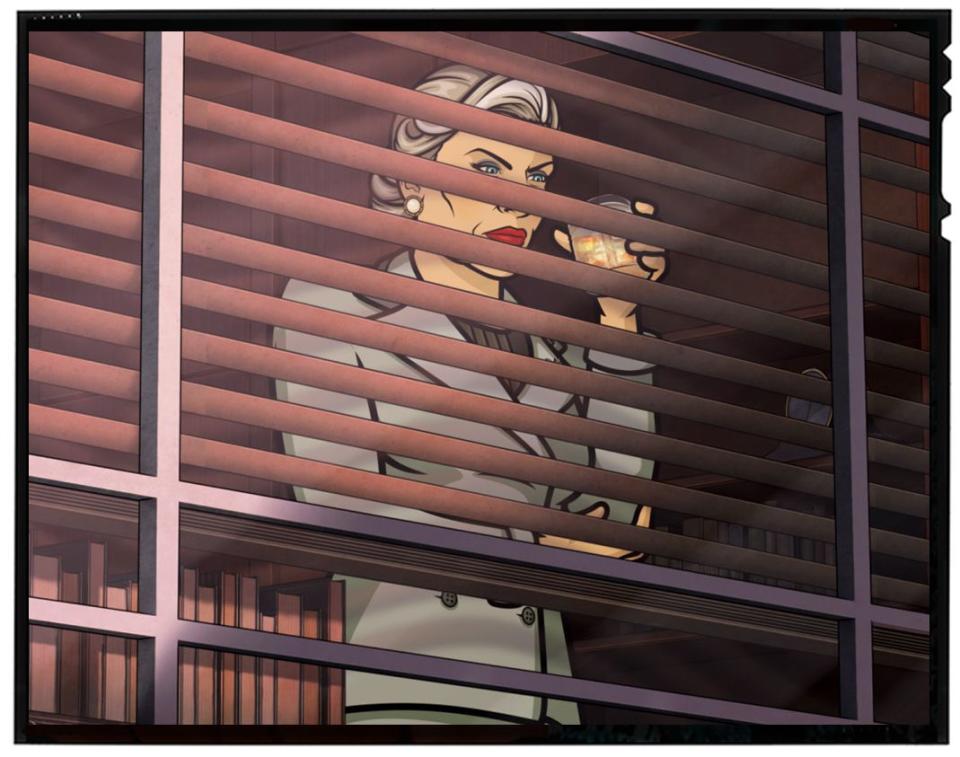
Walter is best known to modern audiences as either Lucille Bluth or the voice of Mallory Archer, her character on FX's long-running animated spy series Archer, who looks and acts strikingly like Lucille: that is to say, a mean-spirited lush in vintage Chanel, who happens to have Jessica Walter's haircut. But other than the haircut, there's virtually no overlap between Walter and her most famous role. Walter, for one, is decidedly unfussy. When she arrives for her photoshoot, she brings her own press-on nails, just in case. In one oft-quoted scene from Arrested Development, Lucille withholds an heirloom brooch from her daughter because it's shaped like an elephant and, she says, "I don't want to invite the comparison." On set, Walter is still quick with the zingers, but they're all delivered with a self-deprecating wink. When she sits on an apple box, she quips, "If I were one pound heavier, I'd be on the floor."
I ask her if fans ever expect-no, crave-to be greeted with one of Lucille's offhand putdowns when they meet her, the same way you might want Susan Lucci to slap you or for Joan Collins to throw a snifter of whiskey at your head. She laughs off the suggestion: No, never. And somehow it makes sense-Walter has been too many things to ever just be Lucille. In an industry where you're so often defined by your last gig, maybe it's only after almost 200 gigs-"I mean, honey, you name it, I've done it"-you just get to be yourself when the cameras aren't rolling.
Maybe you get to look around and just take it all in.

Photography by Natth Jaturapahu | Cinematography by Robert Mroczko | Style Editor Tiffany Reid | Hair & Makeup by Steven Presley | Production by Oona Wally, Suze Lee, & Sameet Sharma
('You Might Also Like',)


